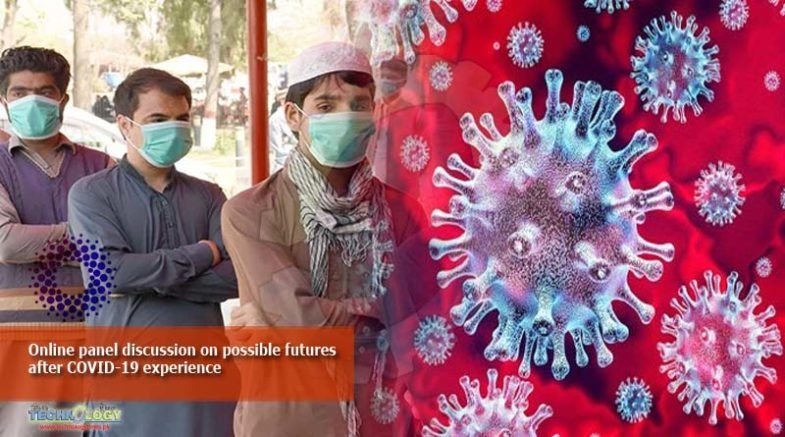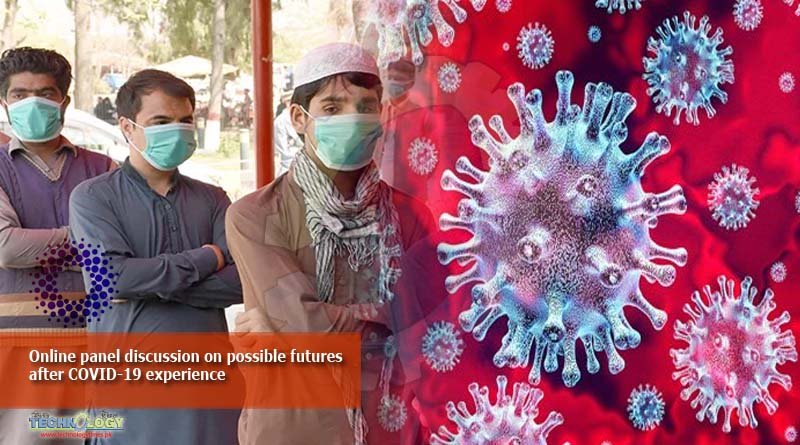Wusool, a startup focused on digital payments in general and E-Commerce payment gateways organized an online panel discussion on possible futures after the COVID-19 experience.
 The COVID-19 has put the entire world into an incubation, where players have been pushed to adopt digital platforms for doing business. Social distancing and lockdowns have forced into remote work (WFH) and pushed people into digital meetings. There is a surge in data consumption and new opportunities in the digital sphere. Regulatory authorities and industry players have been caught unprepared.
The COVID-19 has put the entire world into an incubation, where players have been pushed to adopt digital platforms for doing business. Social distancing and lockdowns have forced into remote work (WFH) and pushed people into digital meetings. There is a surge in data consumption and new opportunities in the digital sphere. Regulatory authorities and industry players have been caught unprepared.
The Online panel discussion invited a cross section of participants to take part in the discussion through an open platform. The discussants included public policy experts, researchers, industry experts and media professionals. The participants agreed that the government needs to take a lead in creating an enabling environment at this stage to encourage digital transformation.
The issue of new entrants to create new value for the citizens also came under discussion, where the cost of entry to business is a serious challenge in terms of innovation and alternate solutions required at this challenging time.
Shabbir Buxamoosa, Co-Founder Wusool and senior industry professional, highlighted the need for the Think Tanks to create knowledge resources and enough evidence through data, that can push the policy makers and business leaders to create value in the changing times for the end consumer, while benefiting from the digital transformation identifying new areas of growth for the industry and job creation for the economy.
Mohsin Iqbal, Co-Founder of Wusool said, “While we are all looking at the COVID-19 from an operational point of view, we need to see this from a regulatory & public policy perspectives as well, where the COVID-19 has put the entire world into an incubation, where all key stakeholders have been pushed to adopt digital platforms for doing business or public service. Generating a surge in data consumption, creating opportunities in the digital sphere, but also exposing performance and compliance requirements at the part of the regulatory and industry players.
Amir Jahangir, CEO Mishal Pakistan, a country partner institute of the World Economic Forum, highlighted that “the surge for online services and data has increased more than 200 times. The impact of COVID-19 (Coronavirus) at the domestic and international level has locked down communities into isolated environments, making the entire world go into Digital Incubation Ecosystems. The work from home has led to an increase in all levels of digital consumption across all stratas of the society.
Akamai, the leading global content delivery network (CDN) services provider for media and software delivery, and cloud security solutions, which generates globally 50 Terabytes of data per second has witnessed the demand for data/content increased to almost 2.86 times more since the COVID-19 Epidemic surge. This identifies a change in consumption patterns and the norms of doing business in the digital age.
Similarly media outlets have witnessed that there is an increase of more than 130% in online data consumption for their own websites as well. The question for policy makers and other stakeholders is that once the economies will recover from the COVID-19 quarantine and isolation the world will see a new way of interacting, communicating and consuming content in the digital sphere, this all revolves around e-commerce solutions. Are we ready for that?
While discussion on the digital transformation, the participants also discussed the performance of the industry players and the regulatory bodies, the poor performance of the industry is a performance report of the failure at the part of the regulatory bodies to be unable to meet the quality standards. In telecommunication the Pakistan Telecommunication Authority has failed to ensure the industry to create value for the citizens, businesses which are complaint and resilient on paper, yet are unable to deliver in reality. Internet services across Pakistan are weak and data transmission is not optimal for businesses compliance. However, the participants also emphasized the need to have a watchdog on the performance of the regulatory bodies and the government, so it can perform more effectively.
Puruesh Chaudhary, President AGAHI and part of the World Futures Society said while participated in discussion that it has forced people to adopt tech and make it part of their business operations. This is the time that technology related businesses should be concentrating on more public policy strengthening to ensure the “actions of today become the habits and norms of tomorrow”.
This means more people will be investing into their possible futures which are tech and digitally enhanced. This is a critical time to explore public policy interventions so the upcoming interactions and the seasonal holidays are celebrated with more ease of mind and advanced tech solutions that become contactless as a preferred choice for interacting between individuals and businesses. The possible purchases for the upcoming seasonal sales including the Black Fridays and Christmas shopping lists would definitely have more digital centric purchases instead of traditional ones this Fall 2020.
The collective thinking of society is moving from traditional assets to digitally integrated assets as a preferred choice. Entrepreneurs and established businesses have an opportunity to recreate the business interactivity among customers, both being buyers and sellers to do more business in the digital space.
The other businesses which are being impacted due to the COVID-19 are travel and tourism, banks, hospitals and health professionals, law enforcement, education, call centers, parks and recreation and almost all businesses where one person interacts with another. The Public Policy agenda needs to consider digital as a pivot for transforming the society and making it ready for the dynamic futures as we witness them to unfold in front of us on a daily basis.
